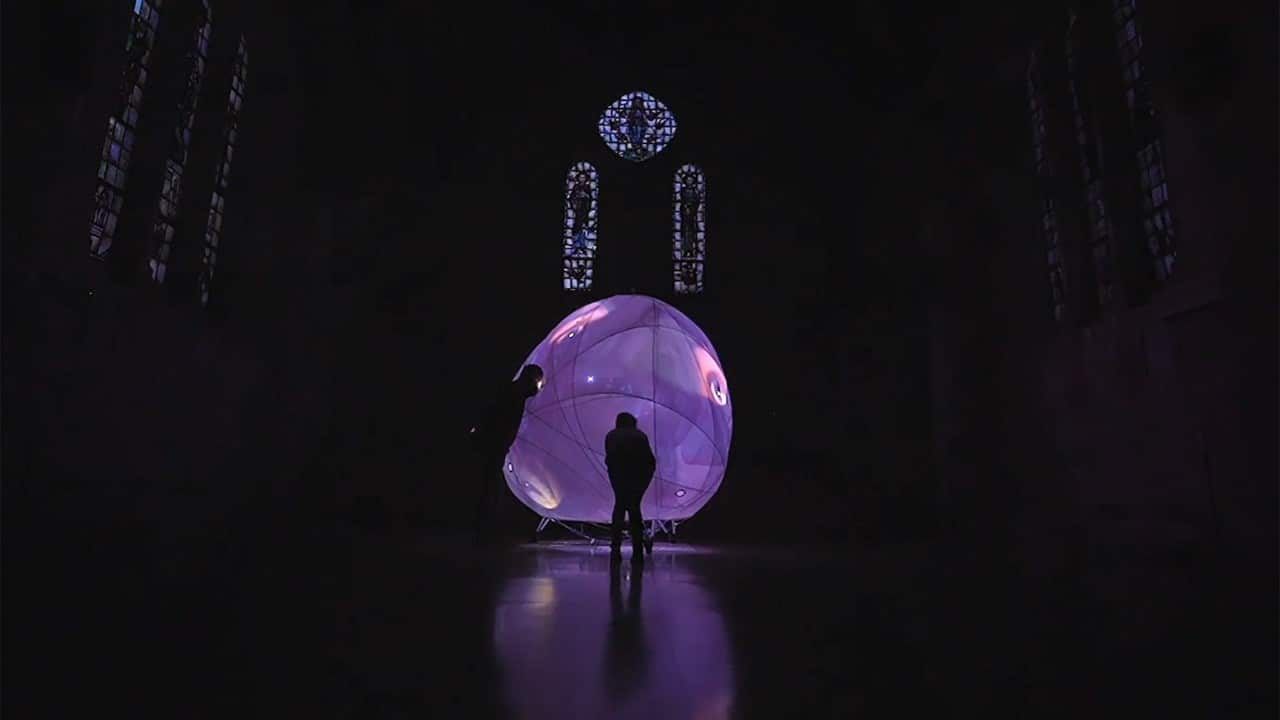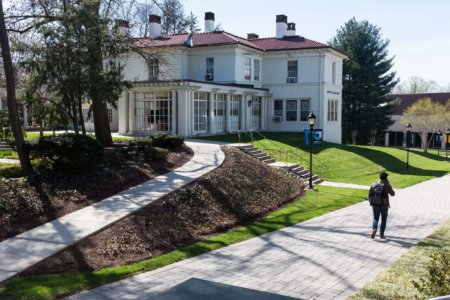The 193 countries that make up the United Nations agree that governments, civil society, the private sector, and others, are expected to contribute to the realization of the 2030 Agenda for Sustainable Development. Together, they aim to tackle 17 global challenges, one of which is the fact that cities and metropolitan areas account for about 70% of global carbon emissions and over 60% of resource use.
It’s little wonder why demand for green talent is set to outpace supply. Around 10% of job postings in 2021 explicitly required at least one green skill, according to LinkedIn’s Global Green Skills Report 2022. And over the past five years, job postings requiring green skills grew at 8% annually, yet the share of green talent has grown at roughly 6% annually in the same period. This is a missed opportunity for the planet and for graduates.

CABE students earn a practice-based education steeped in principles and methods of sustainability. Source: Thomas Jefferson University
Never has this been more true than in the fields of architecture and construction — both of which need greener professionals capable of conceptualizing and building a more equitable and sustainable future free of unplanned urban sprawl, worsening air pollution, and overburdened infrastructure.
The College of Architecture and the Built Environment (CABE) at Thomas Jefferson University is on a mission to educate a new generation of experts — specifically the kind that will continuously reduce their industry’s impact on the environment by using renewable and recyclable materials, reducing energy consumption and protecting natural habitats throughout the construction phase, amongst other tasks tackling the climate change challenge.
Students are taught to execute these challenging tasks within the college’s new Department of Sustainable Environments. This division offers quality academic programs that teach students the arts of honing analytical skills that drive decision-making, applying a system thinking approach to address social, economic, and ecological drivers, as well as developing excellent design and development skills to create sustainable, beautiful, and healthy spaces for all people. Each is just as experiential as it is comprehensive.
“Our programs are taught by expert faculty, renowned researchers, and esteemed professionals who join the collaborative effort to deliver a practice-based education deeply rooted in principles and methods of sustainability,” explains Dean Barbara Klinkhammer. “Our signature Nexus Learning approach through collaborative, real-world projects across all disciplines in the college, prepares our students to participate in and lead effectively interdisciplinary project teams.”
The projects Klinkhammer speaks of often sees students working with community and industry partners across the globe. Within the urban lab of Philadelphia, where Jefferson is based, inspiration and opportunities abound as well, thanks to CABE’s partnerships with major corporations, local communities, and non-profit organizations. Several degree programs unlock access to these fruitful alliances.
The STEM-designated Master of Urban Design – Future Cities was designed to educate 21st century urban designers, architects, and researchers who will spearhead the development of sustainable, healthy, and smart cities and communities. Having explored pressing contemporary issues with far-reaching consequences, such as rapid urbanization and climate change, graduates with this qualification step into the workforce ready to make informed decisions. Concentrations span public health, urban analytics and geodesign, urban revitalization, smart cities, and urban analytics, or resilient cities.
The MS in Sustainable Design teaches students to develop the problem-solving skills needed to produce market-driven solutions, attack the complexity and interconnectedness of sustainability projects, and better serve society. Produced and delivered by the US’s top sustainable designers and experienced sustainability professors, the program is flexible, enabling students to earn a full master’s degree in Sustainable Design or graduate certificates in Sustainability Leadership, Design of Living Buildings, Resilient Communities, or Green Building Operations in person or online. To apply knowledge, they take on opportunities ranging from high-performing sustainable design projects to sustainable initiatives for non-profits and start-ups.

Source: Thomas Jefferson University
Those keen on designing healthy and equitable cities and environments can choose the Bachelor of Landscape Architecture. This accredited program teaches not only what it means to be a responsible and creative designer who listens, but one that also builds trust and advocates for the environment. The qualification effortlessly unlocks leadership positions as well, thanks to the resilient, sustainable and aesthetically-pleasing real-world projects students are expected to take on during their studies. The program’s real-world approach offers students pathways into the landscape architecture profession by working in professional offices as interns for credit or as paid interns with its faculty on research and design projects during the semester or over the summer. They can research and design side by side with their professors, all the while healing the environment!
With an MS in Urban Analytics and Geodesign, students gear up to identify and discover innovative solutions to urban design and urban planning problems by leveraging GIS and advanced geospatial technologies. The journey comprises participating in collaborative applied research projects with industry partners, state and federal agencies, and community partnerships.
To prepare for dynamic careers in interdisciplinary firms, state and federal agencies, NGOs, academia, and more, students get accustomed to advanced technologies, such as parametric 3D modeling, spatial data collection, LiDAR, UAVs (drones), UAV-based photogrammetry, advanced geospatial mobile applications, and BIM.
Meanwhile, the MS in Real Estate Development produces graduates who are ready to lead in the booming profession while addressing the most significant built environment challenges of our time: sustainability, gentrification, poverty, the decline of brick-and-mortar retail, and the shifts in demographics. They do so by learning the ins and out of developing commercial, industrial, institutional, mixed use, and residential real estate development projects.
While case studies commonly use Philadelphia, the US’s first “World Heritage City” as an example, national and international communities are also investigated to ensure students understand the various approaches that can be used to shape healthy places to live, work, and play.
If you’re ready to become a leader or change agent in the fields of design and construction, click here to take your pick today.
Follow Thomas Jefferson University on Facebook, Twitter, Instagram, and YouTube













